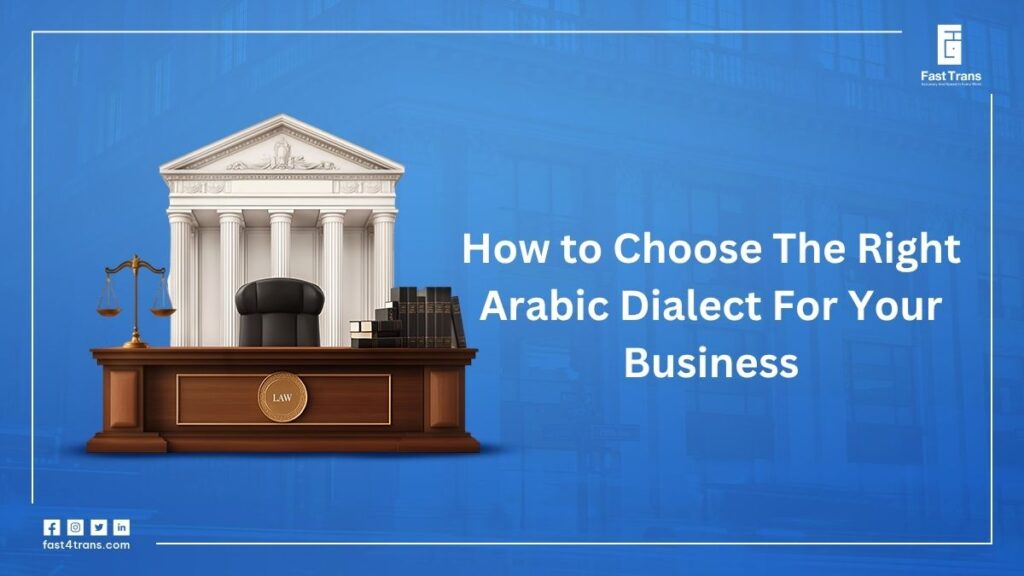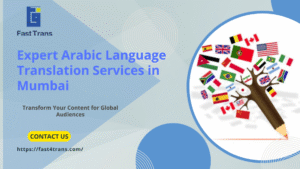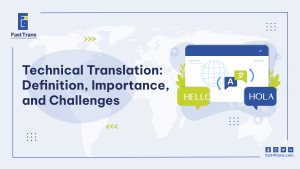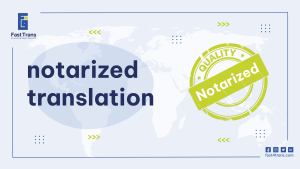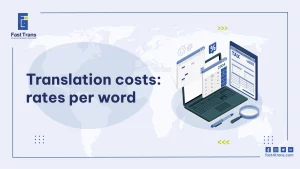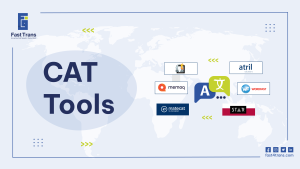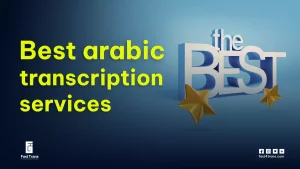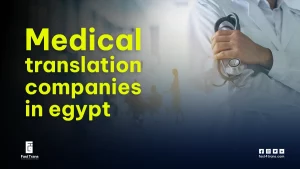Arabic is one of the most influential languages in the world, spoken by over 400 million people across the Middle East, North Africa, and beyond. For businesses seeking to enter or expand in Arabic-speaking markets, language is more than just a communication too it’s the bridge to building trust, credibility, and authentic connections with customers.
Unlike many languages with relatively uniform spoken and written forms, Arabic exists in two layers: Modern Standard Arabic (MSA), the formal version used in media, education, and official documents, and a variety of regional dialects spoken in daily life. Each dialect carries its unique cultural flavor and emotional resonance, which can significantly influence how a message is perceived.
This article will guide you through the process of choosing the right Arabic dialect for your business, helping you understand when to use MSA, when to localize into specific dialects, and how to make language choices that align with your business goals and target audience.
Modern Standard Arabic vs. Dialects
Arabic is unique in that it operates on two levels: a unifying formal language and a wide spectrum of regional dialects. To choose the right approach for your business, it’s important to understand the distinction.
1. Modern Standard Arabic (MSA)
MSA is the standardized, formal version of Arabic used across all Arabic-speaking countries. It is the language of education, official documents, news broadcasts, government communication, and formal writing. Because it is widely taught in schools, MSA ensures mutual understanding among Arabic speakers, even if they come from different regions. For businesses, MSA is the go-to option for official contracts, legal documents, websites, and pan-Arab communication.
2. Arabic Dialects
While MSA serves as the formal bridge, daily life in the Arab world revolves around regional dialects. These dialects are not only diverse but also deeply tied to local identity, culture, and emotional expression. Some of the most influential include:
- Egyptian Arabic: Thanks to Egypt’s historic dominance in film, music, and television, this dialect is the most widely understood across the Arab world, making it highly effective for media and marketing.
- Levantine Arabic (Lebanon, Syria, Jordan, Palestine): Renowned for its mellifluous quality and widespread appeal in entertainment, this dialect resonates strongly in the Levant region and among diasporas worldwide.
- Gulf Arabic (Saudi Arabia, UAE, Qatar, Kuwait, etc.): Essential for businesses operating in the Gulf Cooperation Council (GCC), where markets are booming and consumers expect familiarity in communication.
- Maghrebi Arabic (Morocco, Algeria, Tunisia, Libya): Distinct from eastern dialects, it can be challenging for outsiders to understand, but it is crucial for businesses targeting North Africa.
3. MSA unites, but dialects personalize
While MSA guarantees clarity across borders, using a local dialect can make your brand feel closer, more relatable, and culturally aware. The key lies in balancing the two: leveraging MSA for formality and accessibility, while turning to dialects for deeper emotional connection and regional impact.
Why Dialect Choice Matters in Business?
Language is more than words; it’s a reflection of culture, identity, and trust. When businesses enter Arabic-speaking markets, the choice between MSA and regional dialects can make the difference between sounding professional and sounding truly connected.
1. Customer Engagement & Trust
Speaking to customers in their everyday language builds instant familiarity. When a brand uses the local dialect, it signals respect for cultural nuances and shows that the business understands its audience.
2. Marketing & Branding Impact
Advertising and promotional content are far more effective when localized into the dialect people use at home, on the street, and with friends. Campaigns in Egyptian Arabic, for example, often reach beyond Egypt because audiences across the Arab world recognize and relate to the dialect from media and entertainment.
3. Avoiding Miscommunication
Relying solely on MSA can sometimes make a brand feel distant or overly rigid. While MSA ensures clarity, it doesn’t always capture the cultural tone that resonates with local audiences.
On the other hand, using the wrong dialect or mixing dialects carelessly can confuse or even alienate customers. Striking the right balance is key: MSA for formal consistency, dialects for emotional engagement.
How to Choose the Right Dialect for Your Business
Selecting the right form of Arabic is not a one-size-fits-all decision; it depends on your audience, industry, and long-term business vision. Here are some key factors to guide your choice:
1. Identify Your Target Market
Start with geography and demographics. Are you speaking to customers in Egypt, the Gulf, the Levant, or North Africa? If your audience is concentrated in one country or region, tailoring your message to the local dialect will strengthen engagement.
2. Consider Industry Context
Different industries require different language approaches. For legal, governmental, or academic communication, MSA is essential due to its formality and universality. For marketing, advertising, and customer-facing services, dialects are often more effective, as they reflect the language people use daily.
3. Evaluate Long-Term Goals
Think beyond immediate campaigns. If your goal is to expand across multiple regions, it may be wise to combine strategies: use MSA for core communication while adapting localized campaigns into specific dialects for regional relevance.
4. Work with Professionals
Choosing and using dialects effectively requires cultural sensitivity. Partnering with professional translators, localizers, and native speakers helps you avoid errors, awkward phrasing, or unintended meanings.
By weighing these factors, businesses can craft a language strategy that balances the reach of MSA with the emotional impact of dialects, ensuring their message resonates with the right audience.
Common Mistakes to Avoid When Choosing the Right Arabic Dialect
While choosing the right Arabic dialect can boost your business impact, missteps can harm credibility and weaken your message. Here are some common pitfalls to watch out for:
1. Using the Wrong Dialect for the Wrong Region
Each Arabic-speaking region has its own linguistic and cultural identity. Using Egyptian Arabic in Morocco or Gulf Arabic in Lebanon may confuse your audience or make your brand appear out of touch. Always align the dialect with the target market.
2. Over-Relying on MSA for Casual Content
Although Modern Standard Arabic is widely understood, it often feels too formal for everyday conversations, advertisements, or social media engagement. Overuse of MSA in casual contexts can make your brand sound distant or robotic rather than approachable and relatable.
3. Mixing Dialects Inappropriately
Blending different dialects within the same campaign or message can lead to confusion and dilute your brand’s authenticity. Customers may see it as careless or inauthentic. Consistency is key: stick to one dialect per campaign, or use MSA strategically when addressing a broader audience.
By steering clear of these mistakes, businesses can maintain authenticity, avoid cultural missteps, and build stronger, trust-based relationships with their audiences.
Best Practices Arabic Dialect for Businesses
To make the most of Arabic in your business strategy, it’s important to know not just what to avoid, but also what to do right. Here are some proven best practices:
1. Use MSA for Formal Communication
Rely on Modern Standard Arabic for official documents, legal agreements, academic publications, and pan-Arab communication. It ensures clarity, professionalism, and mutual understanding across regions.
2. Use Dialects for Customer Engagement
For marketing campaigns, social media interactions, and customer support, local dialects are often more effective. They make your brand sound approachable, relatable, and aligned with the cultural voice of your audience.
3. Test Before Launching
Run campaigns through focus groups or small test audiences to gauge how your messaging is received. This helps refine tone, word choice, and cultural nuance, preventing costly mistakes.
4. Partner with Local Experts
Work with native speakers, translators, and cultural consultants who understand both the language and the local market. Their expertise ensures that your brand’s messaging remains authentic, relevant, and respectful of cultural norms.
By combining the reach of MSA with the emotional resonance of dialects and validating content with real audiences, businesses can create communication strategies that are both professional and deeply engaging.
Read Also: Arabic Translation: Human vs. Machine
Best Agencies for Arabic Dialects in the Middle East
If your business wants to reach Arabic-speaking audiences effectively, choosing the right language service provider is essential. Here are some of the top agencies specializing in Arabic dialects, starting with the best:
1. Fast Trans
As a leading translation and localization agency, Fast Trans is recognized for its expertise in both Modern Standard Arabic and regional dialects. From Egyptian Arabic for media campaigns to Gulf Arabic for high-end branding, Fast Trans delivers precise, culturally relevant localizations that resonate with target audiences. With a team of professional translators and localization experts, the agency ensures that businesses communicate with authenticity and impact.
2. Future Trans
Based in Egypt, Future Trans has decades of experience providing translation and localization services across MENA. They work with a wide range of industries, including e-commerce, legal, and technology.
3. Saudisoft
A long-established localization company in Saudi Arabia, Saudisoft specializes in adapting software, websites, and multimedia content to the Arabic market, with strong expertise in Gulf dialects.
4. BayanTech
Operating out of Cairo, BayanTech offers translation and localization services in multiple languages, with a focus on Arabic for technical, medical, and business sectors.
5. Arabize
One of the pioneers in Arabic localization, Arabize works on content adaptation, software localization, and Arabic linguistic solutions tailored to regional needs.
Read Also: Sworn Translation In The UAE?
Depend on Fast Trans for the Right Arabic Dialect
Choosing the right form of Arabic can be complex, but you don’t have to navigate it alone. Fast Trans is one of the leading providers of translation and localization services, with their specialization being conquering linguistic barriers for seamless global interaction. Translators and localizers understand the nuances of Modern Standard Arabic as well as regional dialects like Egyptian, Levantine, Gulf, and Maghrebi Arabic.
Whether you need formal documents in flawless MSA or marketing campaigns tailored to local dialects, Fast Trans ensures your message is both accurate and culturally relevant. By combining linguistic expertise with industry-specific knowledge, we help your brand build trust, connect authentically, and avoid costly mistakes.
Unlike many localization giants on our list, Fast Trans stands out because it provides a wide variety of localization services: Website localization, App localization, software localization, game localization, internationalization, and SEO translation.
Read Also: From Audio to Text – A Look at Arabic Transcription and Translation
Fast Trans Contact Channels
At Fast Trans, we provide multiple flexible and fast communication options to make it easy for you to reach us and place your requests. We are committed to providing instant responses and continuous follow-up to ensure the best customer experience.
Whether you are inside Egypt or abroad, you can contact us through the following channels:
1. Phone: +20 155 219 6068
Call us directly for any inquiries or translation requests.
2. WhatsApp: +20 155 419 6160
Send us a message on WhatsApp, and we will respond promptly with all the translation details.
3. Email: info@fast4trans.com
Send us your documents and inquiries via email, and we will get back to you as soon as possible.
What Our Customers Say
Since the translation project is theirs, we encourage the clients to discuss every stage of the process.
You can check our clients’ comments for yourself at Google Reviews.
Conclusion
Language is at the heart of meaningful communication, and in Arabic-speaking markets, the choice between Modern Standard Arabic and regional dialects can shape how your brand is perceived. MSA offers the clarity and professionalism needed for official and pan-Arab communication, while dialects bring authenticity, relatability, and cultural connection to marketing, customer engagement, and localized campaigns.
For businesses aiming to expand in the Middle East and North Africa, the smartest approach is to balance both, leveraging MSA for formality and consistency, while using the right dialect to connect with audiences on a personal level. Avoiding common mistakes and following best practices ensures that your message resonates rather than alienates.
Partnering with a trusted language service provider like Fast Trans gives you the confidence that every word, phrase, and campaign will be crafted with cultural accuracy and strategic intent. With expert translators and localizers fluent in both MSA and regional dialects, Fast Trans is your reliable partner in breaking language barriers and building lasting connections across the Arab world.

